Tauranga councillors have been flooded with emails opposing iwi representatives being appointed to council committees.
The emails poured in ahead of Tuesday’s Tauranga City Council meeting where the decision was made.
Councillor Hautapu Baker said the majority of the 2500 emails were from members of Hobson’s Pledge, a lobby group that opposes “special” Māori representation in Government.
In October, the council was asked to reinstate tangata whenua appointments and their voting rights on council committees by Te Rangapū Mana Whenua o Tauranga Moana chairwoman Matire Duncan.
Te Rangapū represents the 17 iwi and hapū in Tauranga.
Duncan told the meeting tangata whenua representation was a legal requirement under Te Tiriti o Waitangi and the Local Government and Resource Management Acts, not preferential treatment.
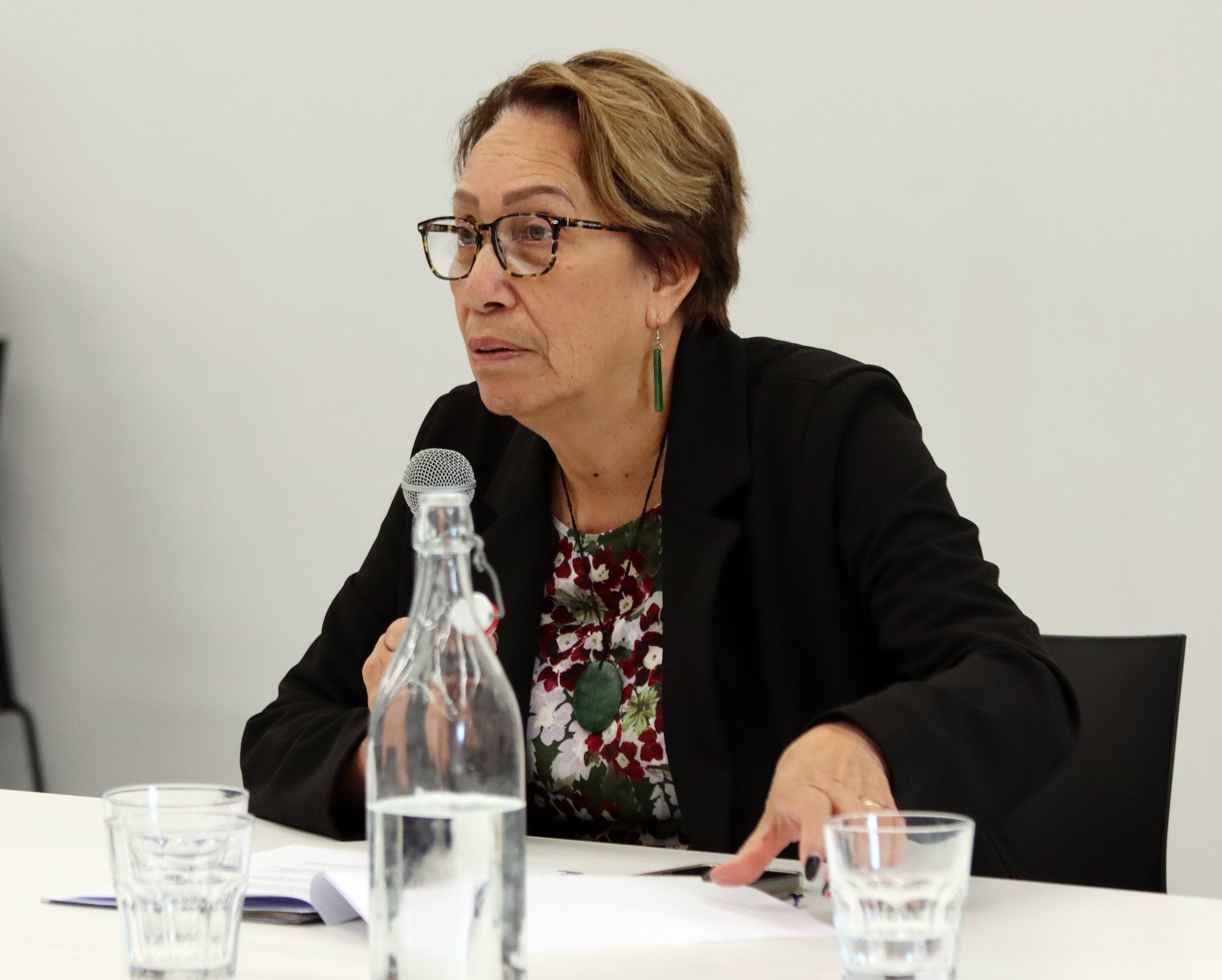
Matire Duncan chairwoman of Te Rangapū Mana Whenua o Tauranga Moana. Photo / Alisha Evans
“It reflects a commitment to shared decision-making and inclusivity, which are vital for our community’s future.”
She said there was a lot of misinformation out there and she wanted to provide facts.
“Tangata whenua representation is not about division, but about fulfilling responsibilities and upholding the principles of equity and partnership that underpin our democracy.”
Duncan’s words were applauded by the packed public gallery.
Tauranga kaumatua Tamati Tata, Puhirake Ihaka, and Des Tata were among the 40-strong crowd in attendance.
Councillors were divided over the appointments and voting rights, but both were passed by a majority vote.
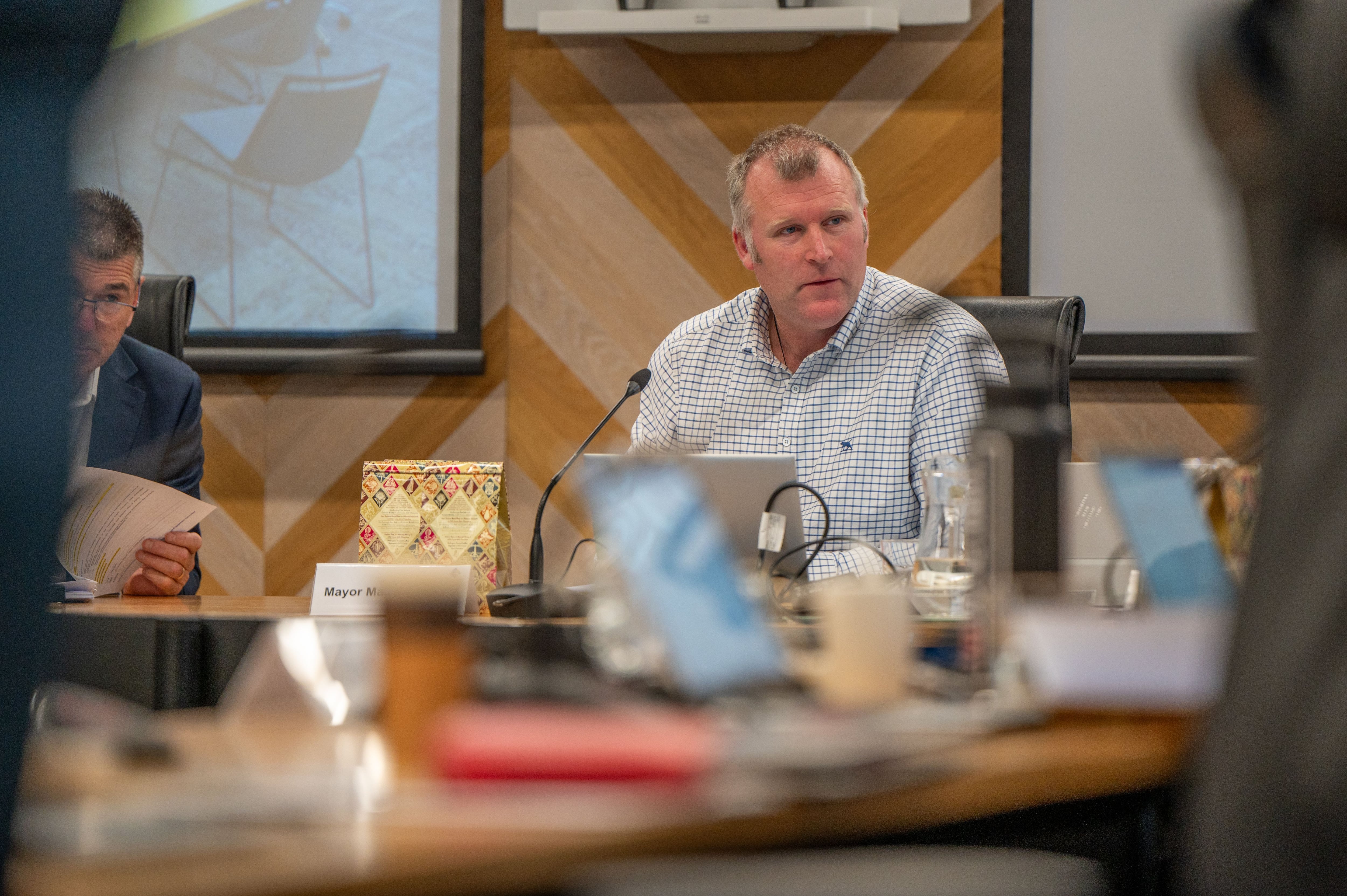
Mayor Mahé Drysdale said iwi representation on council committees would create better outcomes. Photo / David Hall
Mayor Mahé Drysdale said it was not a new approach but the status quo.
Iwi representatives had been appointed to council committees since 2016 and were given voting rights in 2020.
The council did not appoint iwi representatives when first elected in July because the new group wanted to understand if it would be beneficial, Drysdale said.
In the past, council had not had a “great relationship” with iwi but the past few years showed the advantages of working together, he said.
“When we do actually work together, we can get better outcomes.”
Nearly every council in the country had at least one standing committee with an appointed member that had voting rights, he said
“We’re following best process.”
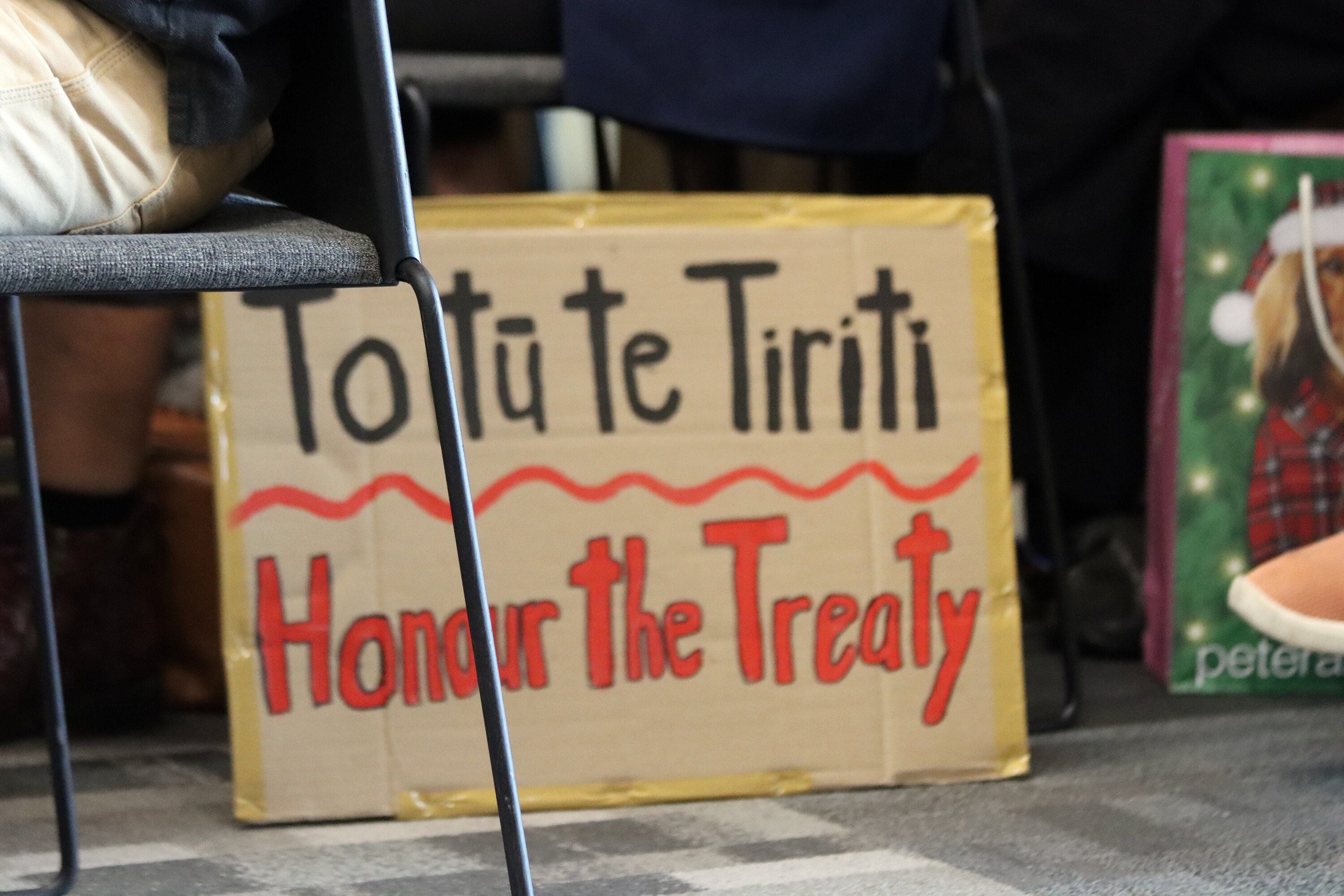
Public gallery of a Tauranga City Council meeting on 10 December 2024. Council was discussing the appointment of tangata whenua appointments to council committees. Photo / Alisha Evans
Baker said consistent messages in the emails were Māori wards and mana whenua representation was not needed, and supporting the appointments was race-based, racist, undemocratic and unlawful, he said.
People’s discontent came from a lack of understanding, Baker said.
He provided history and evidence to address the concerns of “the panicked voice of oppression”.
The idea that iwi representation was race-based decision-making “cracks me up,” Baker said.
“This idea is grounded in the notion of racial superiority, which stems from the belief that the white race is superior to others and that they should have control over people of other races.
“All we [council] are doing is enabling and empowering the equal partnership that was formalised in 1840.”

Deputy Mayor Jen Scoular said she valued contributions by Māori to decision-making. Photo / David Hall
Councillor Jen Scoular said it was interesting many of the emails came from people outside Tauranga — people who wanted to be heard but who did not believe mana whenua should be heard.
The appointment of iwi representatives demonstrated a commitment to equity, partnership and inclusivity, she said.
“I strongly value the opportunity to continue to enable Māori contribution to our decision-making.”
Councillor Marten Rozeboom said a previous council approving a decision did not mean it was correct or in the best interests of the people of Tauranga.
“We are making a decision of great public interest without asking the community for feedback.
“What we are discussing here today is a change in the democratically elected governance that the people of Tauranga voted for back in July.”
Members of the public called out and corrected his pronunciation of Tauranga.
Drysdale asked people not to comment while elected members spoke, and to respect that everyone has different opinions.
He said he appreciated the different views around the table, but he believed having iwi representatives on committees would create better outcomes.
After the appointments and voting were approved, applause then waiata filled the room.
Tangata whenua representatives would be appointed to the council’s Audit and Risk Committee, City Futures Committee and the Community and Performance Committee.
The appointees will be nominated and endorsed by Te Rangapū based on skills, attributes and knowledge appropriate for each committee.
Te Rangapū will go through a recruitment process and make a recommendation to council in early 2025.
How they voted
Tangata whenua representatives on committees:
For: Mahé Drysdale, Jen Scoular, Hautapu Baker, Kevin Schuler, Rod Taylor, Steve Morris
Against: Marten Rozeboom, Rick Curach, Glen Crowther
Voting rights for Tangata whenua representatives on committees:
For: Mahé Drysdale, Jen Scoular, Hautapu Baker, Kevin Schuler, Rod Taylor
Against: Steve Morris, Marten Rozeboom, Rick Curach, Glen Crowther
Absent: Mikaere Sydney
- LDR is local body journalism co-funded by RNZ and NZ On Air.
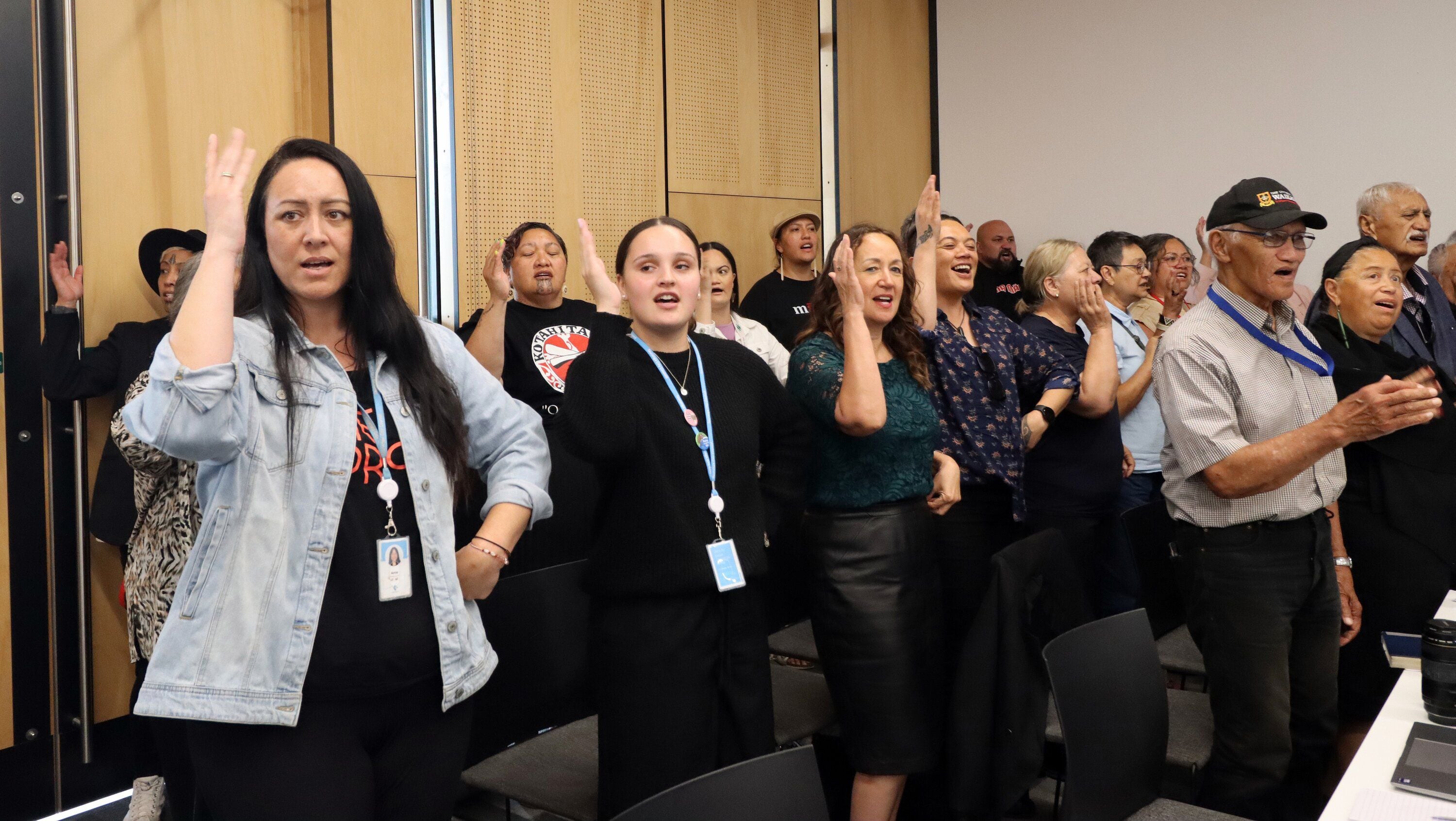
Public gallery of a Tauranga City Council meeting on 10 December 2024. Council was discussing the appointment of tangata whenua appointments to council committees. Photo / Alisha Evans
LDR is local body journalism co-funded by RNZ and NZ On Air.


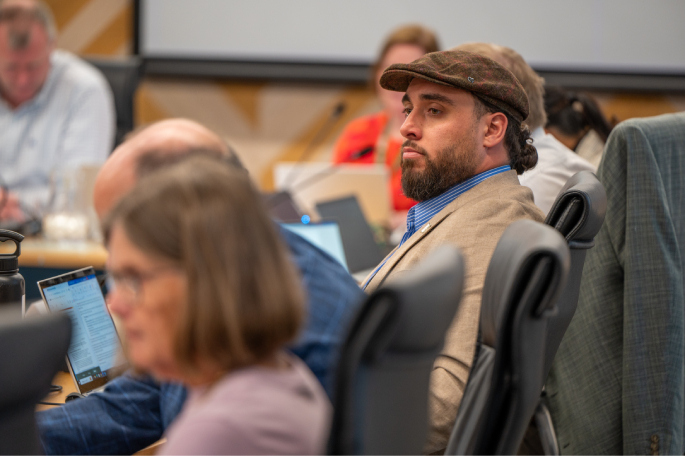

13 comments
Unelected
Posted on 12-12-2024 06:59 | By Saul
New Zealand is on a very slippery slope.....
Equal Partnership?
Posted on 12-12-2024 08:40 | By Equality
What a load of Bull dust! The treaty is not a 'partnership'!
So ratepayers are obviously paying these unelected members of these committees. This is NOT democracy in action! It is blatant racism!
Mahe - you choose to ignore the people who put you in office - you promised to listen to the people of Tauranga yet when it comes down to it - you roll over. Shame on you!
No partnership
Posted on 12-12-2024 09:18 | By Andrew64
The treaty is a simple, but outdated document wherein maori ceded sovereignty to the Crown in exchange for equal rights. No where does it mention partnership. That is a relatively recent invention by some seeking preferential treatment. There is no partnership.
Betrayed again
Posted on 12-12-2024 10:08 | By Jules L
Once again we have been betrayed by our council, who know what the public want, but deliberately do the opposite. Our mayor believes that if a dictatorial un-elected commission did something that the people didn't want, then that is a good justification for him to do it too. We are still going to have to wait until the next election now, in order to try and get our democracy back. I hope those people who voted for the mayor based solely on his ability to paddle a kayak are now realising that he is now taking us up the creek and throwing away that paddle. And once again we see the jeering mob in the public gallery, who turn up whenever a democratic vote is being held, to intimidate councilors into voting the way they want, and abusing anyone that disagrees with them.
Democracy??????
Posted on 12-12-2024 10:42 | By usandthem
Where does Hautapu Baker get his idea that the majority of emails were from members of Hobson's Pledge? Did they state that when emailing their opposition? The elected councillors are there to represent all citizens,including Maori.They only want to appoint their representatives to committees so they can vote down anything that does not go their way.
Disgusting !!
Posted on 12-12-2024 13:12 | By Tonka
Do i read this right.. ?
Because of their race and their so called rights, they can become council members without being voted in. What about the rights of the European ( New Zealander ) does this also mean, they are entitled to become council members without being voted in. I very much doubt it.
Maori have had it, too good, for too long, time it was stopped. If anything vote Mayor Mahé Drysdale and Deputy Mayor Jen Scoular out of council and put someone in that actually has some stones to stop this utter nonsence.
I objected and I am NOT uniformed on the subject. or Racist, or anti-iwi.
Posted on 12-12-2024 16:34 | By morepork
The previous appointments were made under Mahuta's Labour Party based direction which supported co-governance and tikanga. The last General election firmly rejected this.
"I’m writing this because I see you have plans to appoint UNELECTED, PAID, UNQUALIFIED members, based purely on race, to the following committees:
1. Audit and Risk Committee
2. City Futures Committee
3. Community and Performance Committee.
As a citizen and Ratepayer I wish to protest this in the strongest possible terms."
I then gave the reasons for my objection (basically, that any race-based appointments are undemocratic and there is no LEGAL basis for co-governance or power sharing in the Treaty wording. The fact that a previous government tried to implement it does NOT make it right.)
I have posted an extract from my objection which SunLive may or may not publish.
I have also noted the way Councillors voted.
Would be nice
Posted on 13-12-2024 10:02 | By an_alias
If for once we had actual democracy where WE decide rather than a given few who clearly have a bias and agenda.
There is no place for unelected appointments period whoever or whatever.
Something that is fundamental has to be decided by the voters not the few.
@Matire Duncan
Posted on 13-12-2024 19:51 | By morepork
"“Tangata whenua representation is not about division, but about fulfilling responsibilities and upholding the principles of equity and partnership that underpin our democracy.”
The principles that underpin our democracy are that every citizen has the SAME rights. WE vote, and the GOVERNMENT we elect governs. There IS no legal "partnership or "co-governance" between Maori and the rest of the nation, and there is nothing in the Treaty that speaks to that. Maori were given the SAME rights as British subjects, which all of us enjoy to this day. Maori retained rights to their lands and waters, on the understanding that they would give the Crown first option should they decide to sell.
Since then various governments have tried to spin the meaning and that's why David Seymour is seeking a review of what the actual principles (if any, beyond what is stated) of the Treaty are.
I know who not to vote for
Posted on 14-12-2024 14:00 | By Paul W2
By ignoring over 5000 emails apposing this show that this new council is just as out of touch with it's voters as the last mob. Thank you for the list of who voted which way and Drysdale and his supporters will be a one term council.
Disgraceful conduct by council
Posted on 15-12-2024 10:29 | By jed
This is an atrocious decision, and a major change to the underlying democratic principles where people are assumed to have equal rights.
Pre-election Drysdale never flagged his opposition to flouride or his wish to appoint unelected representatives to council!! He would not be mayor today if he told people his plans.
@Paul W2
Posted on 15-12-2024 11:45 | By morepork
I understand how you feel. But it is still early enough to cut the Mayor some slack. At least he is ELECTED. Although he wasn't my first choice, I think we do need to support elected people where we can. Like you, I am carefully aware of who voted which way on the issue of race-based appointments. But the Mayor's job is a difficult one, and nobody can succeed in being all things to all people. I liked the fact that he didn't react emotionally and tried to keep his head. It's easier to respect someone you disagree with when they at least recognize opposition and listen, without just trying to suppress it. If it helps you, try and imagine the Commission dealing with the same issue... :-)
just a thought
Posted on 16-12-2024 13:40 | By Mein Fuhrer
on equal representation, If we are to have Maori Iwi representatives on council, then surely we should also have representatives from all the different ethnic communities like African, Asian, East Asian, Middle Eastern, West and East European, Scandinavian, Icelandic, Mediterranean, North American, South American and Russian.
Leave a Comment
You must be logged in to make a comment.